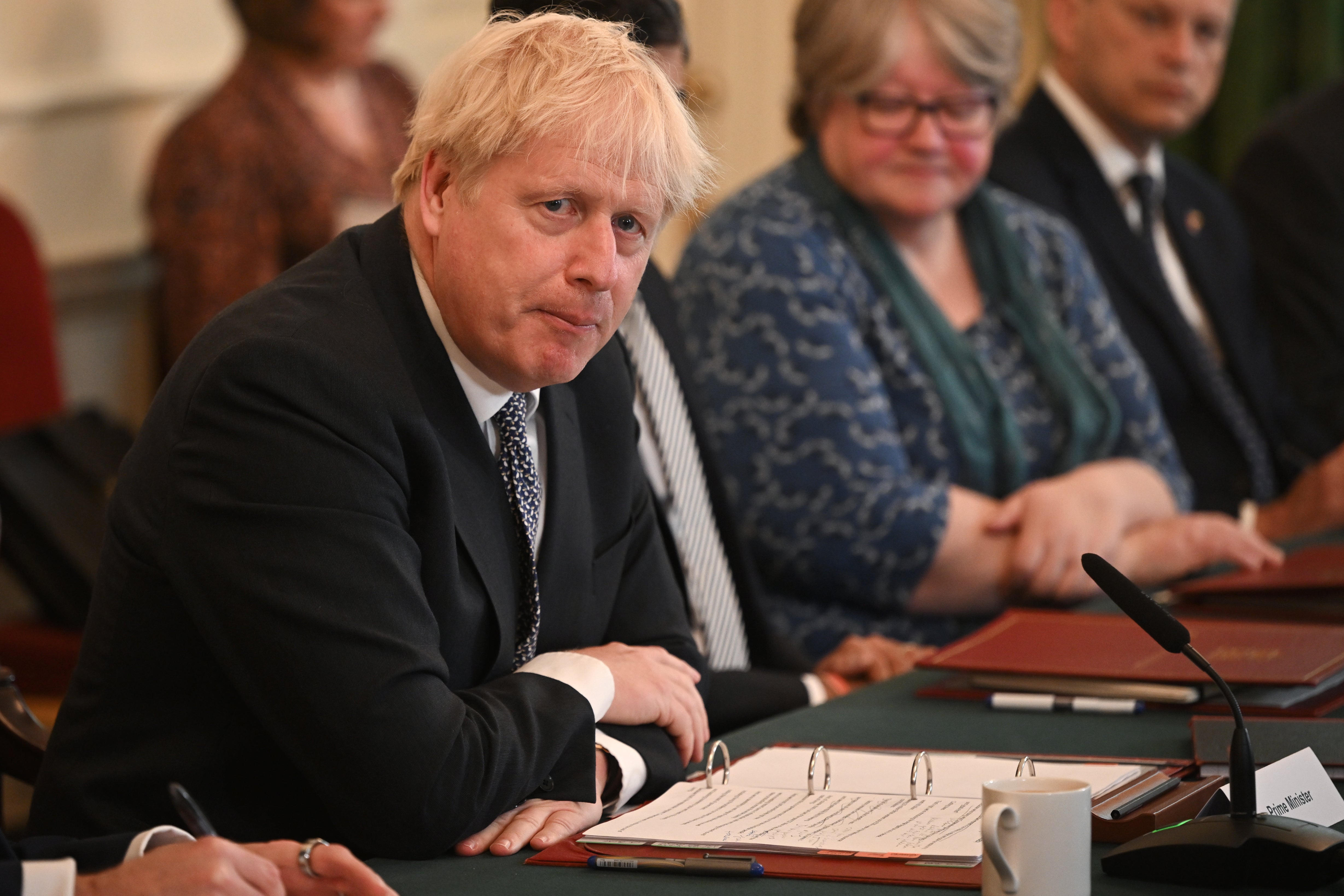It’s too late for Boris Johnson to get a grip on his psychological flaws
The end of Johnson’s premiership could take hours or weeks but the sky is definitely getting darker now, writes John Rentoul


As Boris Johnson slips into the twilight of his premiership, he makes an unusual psychological study. As I wrote the other day, the qualities that won him the election victory and Got Brexit Done are also the cause of his downfall. His willingness to break the rules, or to defy convention, confused his opponents and allowed him to break the deadlock in parliament.
But then came the coronavirus and Johnson appeared to think that the laws his government passed didn’t apply to him. Not only that, when challenged about possible lawbreaking in Downing Street, his instinct was to deny everything and to claim to know nothing.
That is the particular psychological flaw that is responsible for magnifying the Chris Pincher story. The true story is bad enough, namely that Johnson appointed Pincher deputy chief whip knowing that he had admitted and apologised for “inappropriate behaviour” – mandarin-speak for sexual harassment. But an early admission of those facts could have limited the damage. It would have required Johnson to accept that it was a mistake to have appointed Pincher and to apologise for it.
He could even have tried the David Cameron defence, when he explained that he had given Andrew Coulson, the disgraced editor of the News of the World, a job because he believed in giving people a second chance.
Instead, Johnson allowed his spokespeople to tell journalists that he knew nothing about the allegations against Pincher, or, when pressed, about the “specific” allegations. As when Blackadder told Baldrick to “deny everything”, this was a cunning plan designed to make everything worse. Journalists already had colourful quotations from sources close to Johnson reporting his jokes about Pincher’s name and then this morning Simon McDonald, the former civil service head of the Foreign Office, produced chapter and verse about what the prime minister knew when Pincher was appointed a junior minister in his department in 2019.
Just four weeks after he had won a lukewarm vote of confidence from his MPs, Johnson seemed determined to embarrass the 211 who reluctantly supported him. Dominic Raab, the deputy prime minister, had a humiliating round of morning TV interviews while Michael Ellis, the minister for defending the indefensible in the Commons, was required to insist: “The prime minister acted with probity at all times.”
In between, the cameras were allowed into the start of today’s cabinet meeting – again. This used to be a rare chance for some footage for the archives but has recently been a weekly occurrence as Johnson tries to portray himself as the dynamic leader of a team intent on delivering the people’s priorities. Except that, on this occasion, his attempt to sound upbeat about a tax cut that is actually a tax increase partially reversed was belied by the long faces of the unhappy crew around a table looking more coffin-shaped than ever.
All prime ministers use selective amnesia as a tool of government. All governments are careful not to write too much down so that senior ministers can plead tactical ignorance. But Johnson is reckless and unconvincing in his denials. He has got away with it for a long time, and it didn’t stop him becoming prime minister, but now it looks as if it may stop him being prime minister for much longer.
He denied an affair with Petronella Wyatt when he was a shadow minister under Michael Howard. He denied that his Brexit deal would put a border in the Irish Sea. He denied the coronavirus laws had been broken in Downing Street. All his denials are different, and they make a kind of sense to him. His private life was no one’s business; his deal shouldn’t really require checks in the Irish Sea (it’s just the EU being difficult); the rules don’t apply to the important business of running the country; and Pincher’s loyalty was more important than his unfortunate tendency to make a nuisance of himself (as Johnson would see it) when drunk.
To keep up to speed with all the latest opinions and comment, sign up to our free weekly Voices Dispatches newsletter by clicking here
Johnson’s claim to have “forgotten” the conversation about Pincher’s sexual harassment in late 2019 is implausible. As Andrew Gimson commented in Johnson’s biography: “Boris has a remarkable memory.” Gimson recounted the occasion when his subject “burst out into a great chunk of ‘Lycidas’ by John Milton”, and quoted the 13 lines Johnson recited from memory (the bit about sporting with Amaryllis in the shade).
It is too late for Johnson to get a grip on his psychological flaws, however. Most voters are not interested in what the prime minister knew about Pincher’s misdemeanours and when he knew it, but they are still annoyed about Johnson’s denial that he knew coronavirus laws were being flouted in Downing Street.
Twilight lasts a long time at this time of year, and the end of Johnson’s premiership could take some time, but the sky is definitely getting darker now.






Join our commenting forum
Join thought-provoking conversations, follow other Independent readers and see their replies
Comments